What would make a good leader in new Bangladesh?

I was quite enchanted by a recent op-ed piece titled "Bangladesh deserves better leaders. How do we find them?" by Kollol Kibria, recently published in The Daily Star. It is a timely concern raised by the author and a critical issue that deserves due attention since Bangladesh hopes to transition to a new era, both from political and development perspectives. Taking cue from the recently held Bangladesh Investment Summit as a model, the article sets out with clarity and powerful arguments the kind of leadership Bangladesh needs moving forward. However, the question remains: how do we find or identify a leader?
We are talking about all kinds of leaders, with a particular focus on political leadership, given the current complex and dynamic political environment in Bangladesh. It stands at the precipice of transformation. The time is not for politics as usual. As Bangladesh seeks transition into a more prosperous and modern country, the role of effective leadership has become paramount. To successfully navigate this transition, it requires leaders who possess a unique blend of qualities that will foster growth, unity, and progress at all levels of government, administration, and businesses. Are we ready for it? Who are our leaders? What does a leader do? What are the traits of a leader?
Leaders are not born; they are made. In our history, we have had many impactful and iconic leaders: Sher-e-Bangla AK Fazlul Haque, Maulana Abdul Hamid Khan Bhashani, Sheikh Mujibur Rahman, and others. Leadership qualities are a mix of many traits. But defining what truly marks these historic icons as good leaders proves a bit challenging. Was it simply the political environment of their times that made them good leaders, or something more? What sets these successful leaders apart?
I think the qualities of leadership can be quite elusive. Nevertheless, there are some essential traits that leaders should demonstrate in these difficult times to lead the country and to effectively manage the affairs, both nationally and internationally.
First, a leader must have a visionary outlook and be able to see beyond the obvious. A leader should be able to envision the future and articulate a clear and inspiring vision to the people. This quality involves not only the ability to foresee potential challenges, but also the capacity to identify opportunities that can propel the nation forward—for instance, as projected at the investment summit. Visionary leaders can motivate and inspire followers by painting a picture of a brighter tomorrow, encouraging collective effort towards shared goals.
Second, integrity is the cornerstone of effective leadership. Leaders must demonstrate a commitment to ethical principles and transparency in their actions. This has been missing among Bangladeshi politicians for a very long time. Corruption, nepotism, and lies ruled over other considerations. The country needs leaders who are truthful, honest, educated, and transparent. The new leadership must be achieved with trust and honesty, and not ascribed or inherited on any family tradition or political dynasty.
Third, leaders must be transparent. Transparency helps to foster an environment where ordinary people feel valued and involved in political decision-making. Winning an election or becoming a member of parliament (MP) does not necessarily make someone a leader. Unfortunately, many of the elected MPs in the past were rewarded because of their loyalty and blind obedience to the party leadership. The political and party systems were designed not to empower and motivate new leadership. We must change this trend.
Fourth, empathy and inclusivity can connect leaders with the masses on a personal level, understanding their needs, aspirations, and concerns. Many of our iconic leaders had these traits, which helped unite diverse groups and create a sense of belonging and purpose during critical times in our history. The new leaders for tomorrow's Bangladesh must be empathetic to ensure that no one is left behind in the march ahead for upliftment and societal progress.
Fifth, the path to transforming Bangladesh will undoubtedly be fraught with challenges. Leaders must demonstrate resilience—an unwavering determination to persevere in the face of adversity. There is no room for flip-flopping. Equally important is adaptability, the ability to pivot and adjust strategies as circumstances change. Resilient and adaptable leaders can navigate crises effectively and maintain momentum towards achieving long-term objectives.
Sixth, clear and compelling communication is a vital leadership quality. Bangladesh needs young, educated, and forward-looking leaders. Leaders must be able to convey their vision, policies, and decisions in a manner that is easily understood by the masses. Effective communication fosters transparency and accountability, and encourages participation.
Seventh, leaders must be innovative and are able to think outside the box and develop creative solutions to complex problems. They embrace technology and new methodologies to drive progress. Forward-thinking leaders prioritise sustainable development, ensuring that their actions today build a better future for generations to come.
Finally, one must look for individuals who embody these qualities. Leaders can be identified through their track record of accomplishments, their ability to inspire and mobilise others, and their commitment to people's welfare. The aspiring leaders should demonstrate a deep understanding of Bangladesh's unique socio-economic and cultural landscape and possess the skills necessary to address its challenges.
Dr Mohammad Zaman is an international development and resettlement specialist with interest in contemporary political and social development issues. His forthcoming book is titled Anatomy of Resettlement: Ethnographic Accounts and Stories in Retrospect (Lexington Books, 2025). He can be reached at [email protected].
Views expressed in this article are the author's own.
Follow The Daily Star Opinion on Facebook for the latest opinions, commentaries and analyses by experts and professionals. To contribute your article or letter to The Daily Star Opinion, see our guidelines for submission.
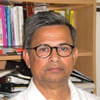
 For all latest news, follow The Daily Star's Google News channel.
For all latest news, follow The Daily Star's Google News channel. 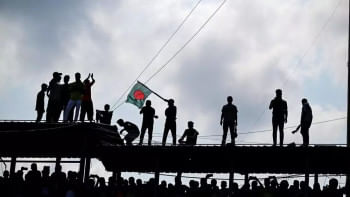
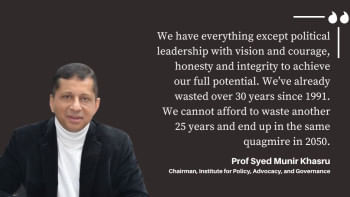

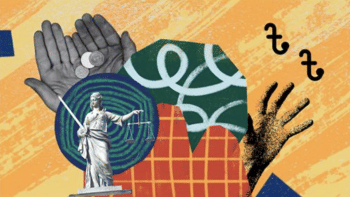




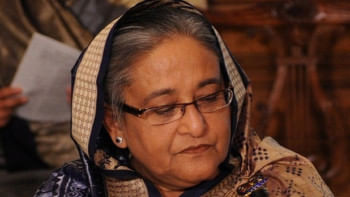
Comments